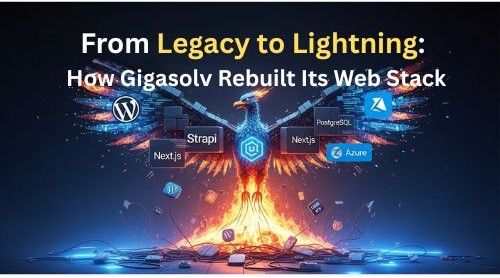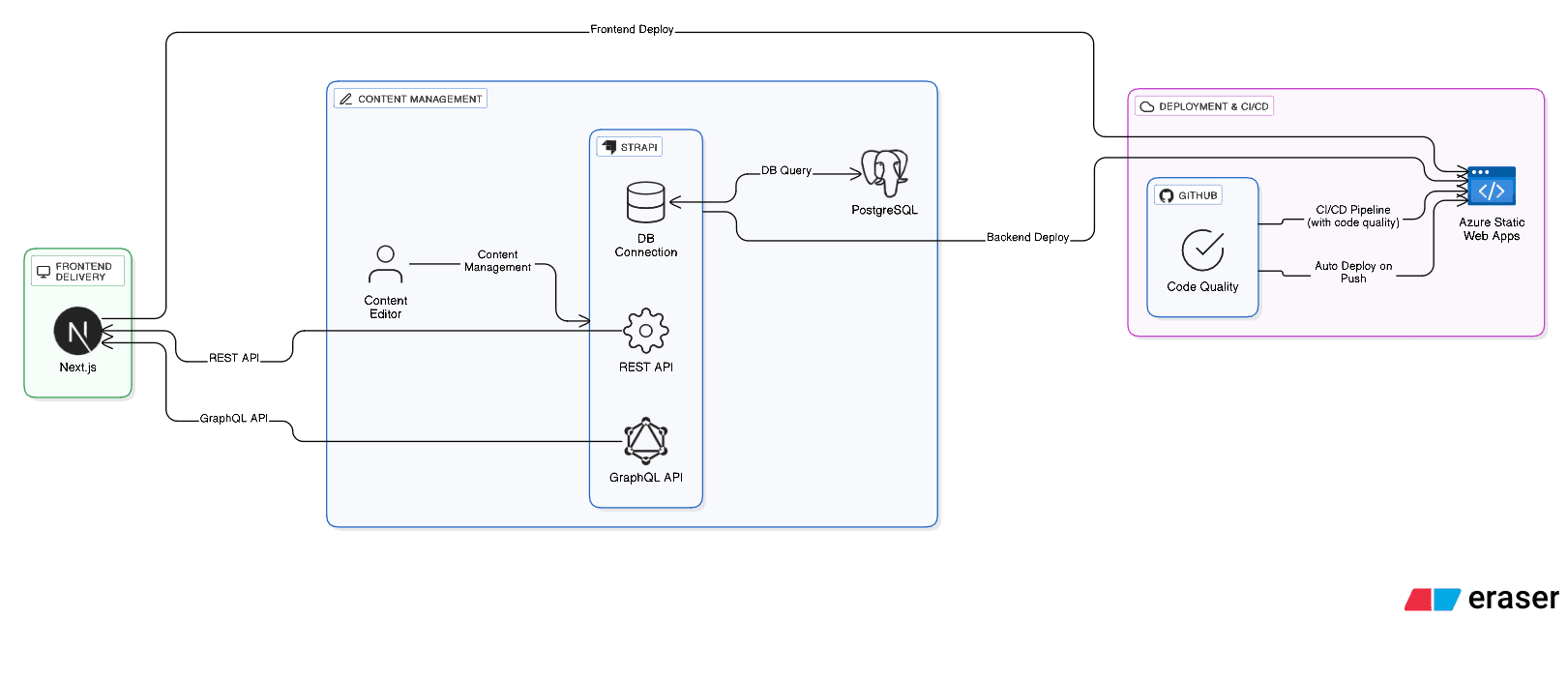Case Study
Loading...
Why Gigasolv Rebuilt Its Website with Strapi + Next.js

We migrated from WordPress to a Strapi + Next.js stack deployed on Azure Static Web Apps with PostgreSQL as the database. The result: faster performance, cleaner workflows, and a future-ready digital presence.
The Problem: Growing pains with WordPress
At Gigasolv, our old WordPress site was:
Sluggish despite optimizations
Rigid in design and templating
Dependent on plugins that often conflicted
Difficult to scale across new platforms
❝ It wasnʼt just a developer pain. WordPress had become a bottleneck for our business. ❞
Our Goals for the Rebuild
We wanted to:
Separate content from presentation (true headless architecture)
Empower marketing teams without developer dependencies
Improve site speed and Core Web Vitals
Use a tech stack that would scale with us
The Tech Stack we chose
Backend CMS: Strapi
Frontend Framework: Next.js
Database: PostgreSQL
Hosting & Deployment: Azure Static Web Apps (frontend + backend) via Git based CI/CD
Integrations: Markdown, REST APIs, custom components
How Gigasolv built its modern stack using Strapi, PostgreSQL, Next.js, and Azure Static Web Apps.

Why Strapi + Next.js?
Why Strapi
Fully open and self-hosted for maximum flexibility and ownership
REST & GraphQL support out of the box
Custom content types in minutes
Developer-first, but content team–friendly
Easy plugin system and role-based permissions
Why Next.js
Combines static generation and server-side rendering for ultra-fast, seamless user experiences
SEO-optimized out of the box
Works seamlessly with headless CMS
Excellent DX (developer experience)
Migration Strategy
The Impact
| Metric | Before (WordPress) | After (Strapi + Next.js) |
| Time to First Byte | 800ms+ | < 200ms |
| Lighthouse Performance | ~60 | 90+ |
| Time to publish content | Hours (with dev help) | Minutes(autonomous) |
| Mobile responsiveness | Inconsistent | Fully optimized |
| Developer happiness | 😩 | 😎 |
❝ It wasnʼt just a tech upgrade. It was a strategic shift in how we build and grow. ❞
Key Takeaways
Headless CMS is not just for devs. It helps the entire org move faster
Migration is a chance to rethink, not just re-platform
Strapi is a powerful middle ground between flexibility and usability
Next.js makes frontend performance effortless with the right architecture
Whatʼs next for Gigasolv
Scalable multi-site architecture
Personalized experiences via dynamic content
Experimentation with AI content structuring
Reusable headless components for future client work
Final word from the Founder “Going headless unlocked speed, creativity, and control, not just for our dev team, but for our entire business. Weʼre not going back.ˮ
— Pradeep Reddy, Founder, Gigasolv
Thinking of Going Headless?
We help companies transition from legacy CMS to Strapi with clarity, speed, and long-term thinking.
Book a consultation
View our Headless CMS services






